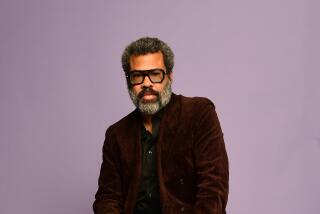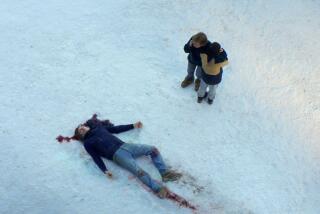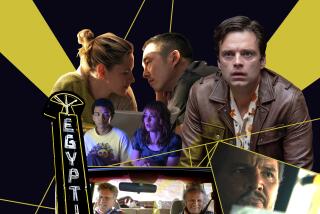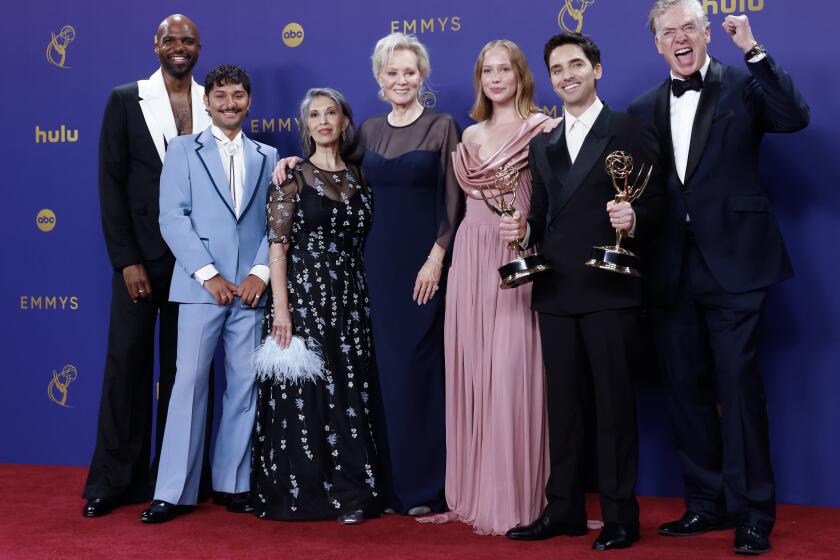Jordan Peele used unknown composer Michael Abels for ‘Get Out’ — and got a thumbs up from Steven Spielberg
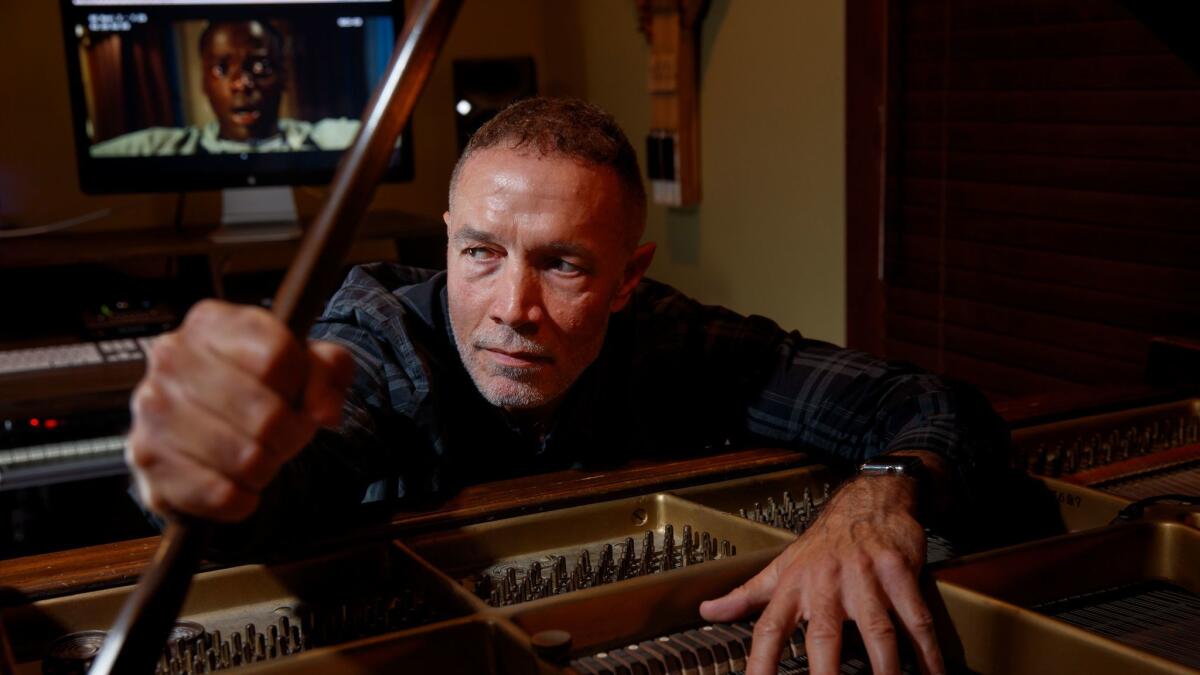
No one expected Jordan Peele’s low-budget horror/comedy “Get Out” to make $253 million worldwide, while charming practically every film critic. And no one had heard of its composer, Michael Abels.
Peele specifically wanted a composer of color for his “Twilight Zone”-esque tale of a young black man named Chris Washington (Daniel Kaluuya) who visits his white girlfriend’s family, as well as someone “capable of making new sounds.” He found Abels through YouTube, landing on the composer’s concert piece “Urban Legends.”
Abels, 55, has been composing since he was a child. A graduate of USC Thornton, he has written music for gospel choirs, orchestra and various ensembles. By day, he runs the music department at New Roads, a private school in Santa Monica. But he had never scored a film.
WATCH: Video Q&A’s from this season’s hottest contenders »

“Get Out” director Jordan Peele says, “The sunken place is this metaphor for the system that is suppressing the freedom of black people.”
“You could tell from that track and your research that he’s a fluent musician and composer in many different genres of music,” Peele said. “This movie is a hybrid of genres itself, and the monstrous operation that the movie’s about, the coagula procedure, is in itself a hybridization. Michael was my guy, and I really never looked any further.”
The first thing they talked about was the importance of voice.
“He said to me: ‘I want the African American voice in this film,’” said Abels. “And he meant that both literally and figuratively. We came up with this concept of, I was looking for ‘gospel horror.’ I think any film composer would be completely inspired by a chance to do something that, by definition, doesn’t exist.
“We talked about how the voices represented the souls of the departed, of the disenfranchised, of lynching victims, and slaves and any person of color who had been victimized throughout the ages,” Abels added. “They’re supposed to be informing the lead character and trying to warn him.”
Abels wrote a choral piece with such phrases as “Listen to the ancestors” and “Save yourself” that are sung, chanted and whispered — all in Swahili.
“Not only would that force people to listen to the emotion of the words rather than the actual lyrics,” said Abels, “but it also relates to this idea of the unfamiliar being what’s scary.”
Those voices haunt much of the score, moaning or atonally “blues riffing.” In the scene where Bradley Whitford’s character preps for surgery, some clearly white voices ominously juxtapose the two cultures at play.
One of the score’s featured instruments is solo harp, normally used for delicate beauty but here providing a vulnerable and unsettling atmosphere for Chris’ horrific odyssey.
The film is “meant to be classic in the sense of Hitchcock or de Palma,” said Abels. “And because its themes are so profound, it has the potential to be considered that. So the score needed to have a classic sense, that you’re watching a movie from maybe an earlier time. And one thing you can say about the harp is it’s classy.”
The film opens with a fiddling motif, which was actually performed on a cello (Abels’ instruction to the player was to make it sound like a clucking chicken). He wrote a watch-ticking motif for tuned bowls to accompany Chris’ unwilling hypnotism, a slow theme for deep string chords for “the sunken place,” and a doomed love theme for Chris and Rose performed by solo cello and surrounded by an electronic “nighttime shimmer.”
It was clear to me that Jordan, in writing his script, has this really deft way of hitting you over the head with subtlety, if that makes any sense.
— Michael Abels
Everything on the score other than the voices and the strings (recorded remotely in Budapest) is electronic or digital samples.
“It was clear to me that Jordan, in writing his script, has this really deft way of hitting you over the head with subtlety, if that makes any sense,” said Abels. “So the score needed to be present, but it couldn’t ever be stronger than what was actually on the screen.”
Peele called the score “the soul of the movie” and already planned to reteam with Abels — when he got a phone call from Steven Spielberg.
“He said, ‘You know, Michael Abels, that guy is great. You’ve got to use him again. It’s like me and John Williams,’” Peele recounted. “I would have absolutely used him again, but after Steven Spielberg, it made me feel so validated and so happy.”
More to Read
From the Oscars to the Emmys.
Get the Envelope newsletter for exclusive awards season coverage, behind-the-scenes stories from the Envelope podcast and columnist Glenn Whipp’s must-read analysis.
You may occasionally receive promotional content from the Los Angeles Times.
